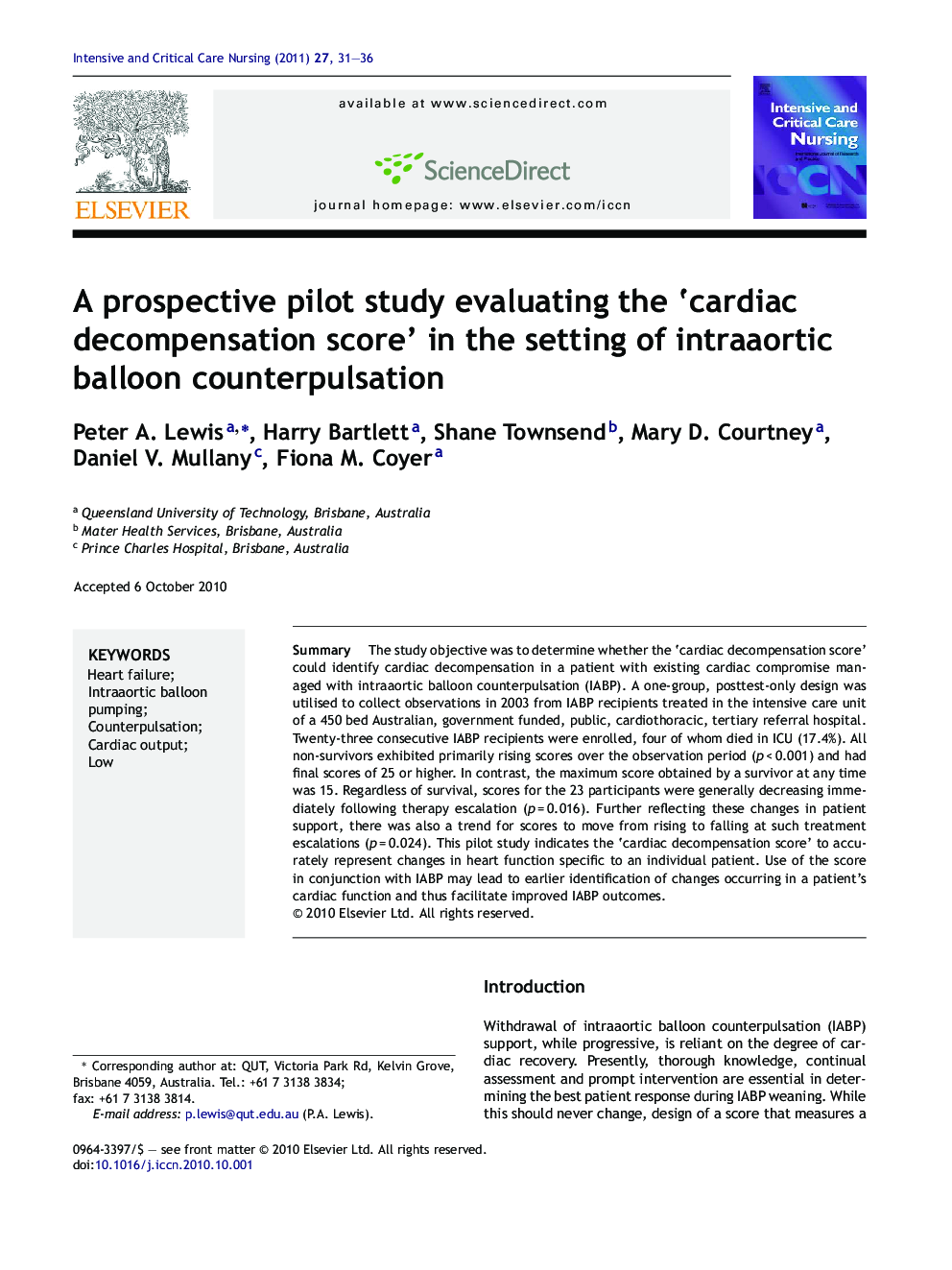| Article ID | Journal | Published Year | Pages | File Type |
|---|---|---|---|---|
| 2653200 | Intensive and Critical Care Nursing | 2011 | 6 Pages |
SummaryThe study objective was to determine whether the ‘cardiac decompensation score’ could identify cardiac decompensation in a patient with existing cardiac compromise managed with intraaortic balloon counterpulsation (IABP). A one-group, posttest-only design was utilised to collect observations in 2003 from IABP recipients treated in the intensive care unit of a 450 bed Australian, government funded, public, cardiothoracic, tertiary referral hospital. Twenty-three consecutive IABP recipients were enrolled, four of whom died in ICU (17.4%). All non-survivors exhibited primarily rising scores over the observation period (p < 0.001) and had final scores of 25 or higher. In contrast, the maximum score obtained by a survivor at any time was 15. Regardless of survival, scores for the 23 participants were generally decreasing immediately following therapy escalation (p = 0.016). Further reflecting these changes in patient support, there was also a trend for scores to move from rising to falling at such treatment escalations (p = 0.024). This pilot study indicates the ‘cardiac decompensation score’ to accurately represent changes in heart function specific to an individual patient. Use of the score in conjunction with IABP may lead to earlier identification of changes occurring in a patient's cardiac function and thus facilitate improved IABP outcomes.
